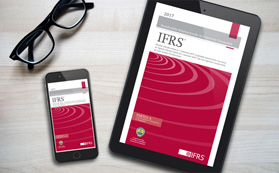
Law no 126/2024: New measures to combat tax evasion
Numărul 19, 15-21 mai 2024 » Finance & Economics
Law no 126/2024 regarding some measures to strengthen the capacity to combat tax evasion, as well as to amend and supplement some normative acts, published in the Official Gazette, Part I no. 437 of May 13th, 2024, entered into force on May 16th, 2024
The main changes/completions brought to the Tax Evasion Law:
1. Failure to withhold the taxes and/or contributions provided for in the annex to this law constitutes a crime and is punishable by imprisonment from one to 5 years or a fine.
2. The limits of some prison sentences are increased and the acts committed in connection with electronic documents, the national RO_eFactura system and cash registers also enter the scope of tax evasion.
Thus, the following acts committed for the purpose of evading the fulfillment of fiscal obligations constitute tax evasion crimes and are punishable by imprisonment from 3 to 10 years (previous penalties were between 2 and 8 years) and the prohibition of certain rights or with a fine:
To remember! If the acts provided for in point 2 caused damage greater than 1,000,000 euros, in the equivalent of the national currency, the minimum limit of the punishment provided by the law and its maximum limit are increased by 5 years.
3. It constitutes a crime and is punishable by imprisonment from 7 to 15 years and the prohibition of the exercise of certain rights, any action committed within fraudulent schemes having the effect of reducing the resources of the state budget by at least 1,000,000 euros, in the equivalent of the national currency, through:
The attempt to commit the offense provided for in point 3 is punishable.
4. It constitutes a crime and is punishable by imprisonment from 3 to 10 years and the prohibition of certain rights or by a fine, the lending operation carried out directly or indirectly by any natural person, with the purpose of making payments with sums of money that come from the omission of highlighting in the accounting documents of the commercial operations carried out and/or of the incomes of one or more taxpayers.
5. In the case of the commission of certain tax evasion crimes, if until the expiry of a period of maximum 30 days from the completion of the control carried out by the competent bodies, after which a damage due to the general consolidated budget of up to 1,000,000 euros is individualized, the increased damage with 15% of its value, to which interest and penalties are added, is fully covered, by actual payment, the act is not punished. In this case, the competent bodies do not notify the criminal investigation bodies.
6. In the case of the crimes provided for by this law, the limitation period for criminal liability begins to run from the date of notification to the fiscal body or from the date of notification to the criminal prosecution body, but no later than 10 years from the date of the commission of the crime.
(Copyright foto: 123RF Stock Photo)
















Litoralul, o imensă scenă a artei de calitate
Cultură și statistică. Drumul spre mai mult și mai bine
Sub egida Ateneului Român, o vară muzicală de excepție
Expoziție la BNR: „Un alt fel de tezaur: Campionii României”
Bookfest 2024, încă un pas al editurilor spre armonizarea ofertei cu cererea
Festivalul Internațional Shakespeare. Din nou, Craiova la superlativ
Festivalul Filmului European. A șaptea artă, la superlativ
„Fără cărți, istoria e tăcută, literatura nu are glas, știința e infirmă, iar gândirea suspendată”